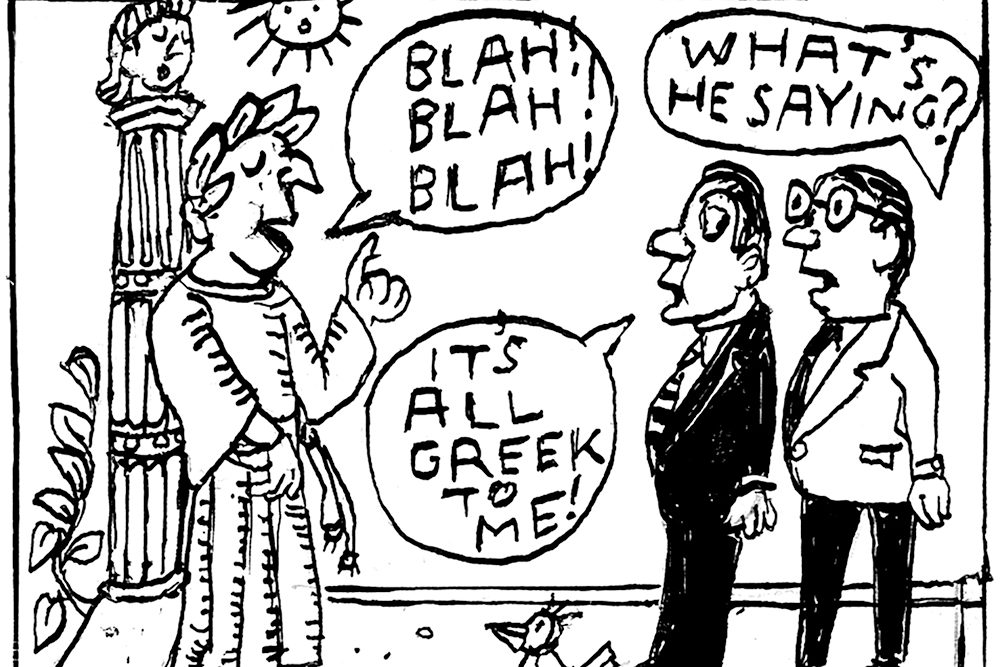“Slither, slather, sliver, slaver, slabber, slobber,” chanted my husband from the armchair beside his glass of whisky, to a little tune he had composed all by himself. The occasion for this outburst was a seventh item of slip-slop vocabulary: a newspaper reference to a slice of bread “lathered in mayonnaise.” I think it might just have been a misprint for slathered.
Slather has been used for less than a century to mean “spread or splash liberally on.” The OED illustrates its fundamental meaning of “slip” with a Kipling quotation: “I hate slathering through fluff.” This is not very illuminating, since fluff is dry, not slippery. But the quotation comes from a story published in 1905, “With the Night Mail,” a futuristic tale of a transatlantic airship set in 2000. “We generally pick up an easterly draught below three thousand at this time o’ the year. I hate slathering through fluff,” says the captain. Here fluff is a fictional technical term for cloud.
Though slather was originally associated with sliding, it is not clear that it derives from slide, as slither does. Slither is often unthinkingly confused (as bought and brought are) with sliver. A visitor, asked if she’d like a slice of cake, might say “Just a slither,” as though it were a serpent being offered. We are subconsciously aware of some verbs changing vowels in past tenses (sing, sang, sung; drink, drank, drunk). The process is called ablaut by philologists; it’s a German term since much philology was pioneered by Germans. Thus we associate slather with the same group of meanings as slither, even if the words are not related by descent. Slaver, slabber and slobber are related, but sliver has a completely different origin. Lather also belongs to a different family, coming from an Old Norse word meaning “washing soda” (though Vikings have lost in popular eyes any washday image), being related to Ancient Greek loutron, “a bath,” and Latin lavare, “to wash.” Just slather it all over.
This article was originally published in The Spectator’s May 2023 World edition.





















